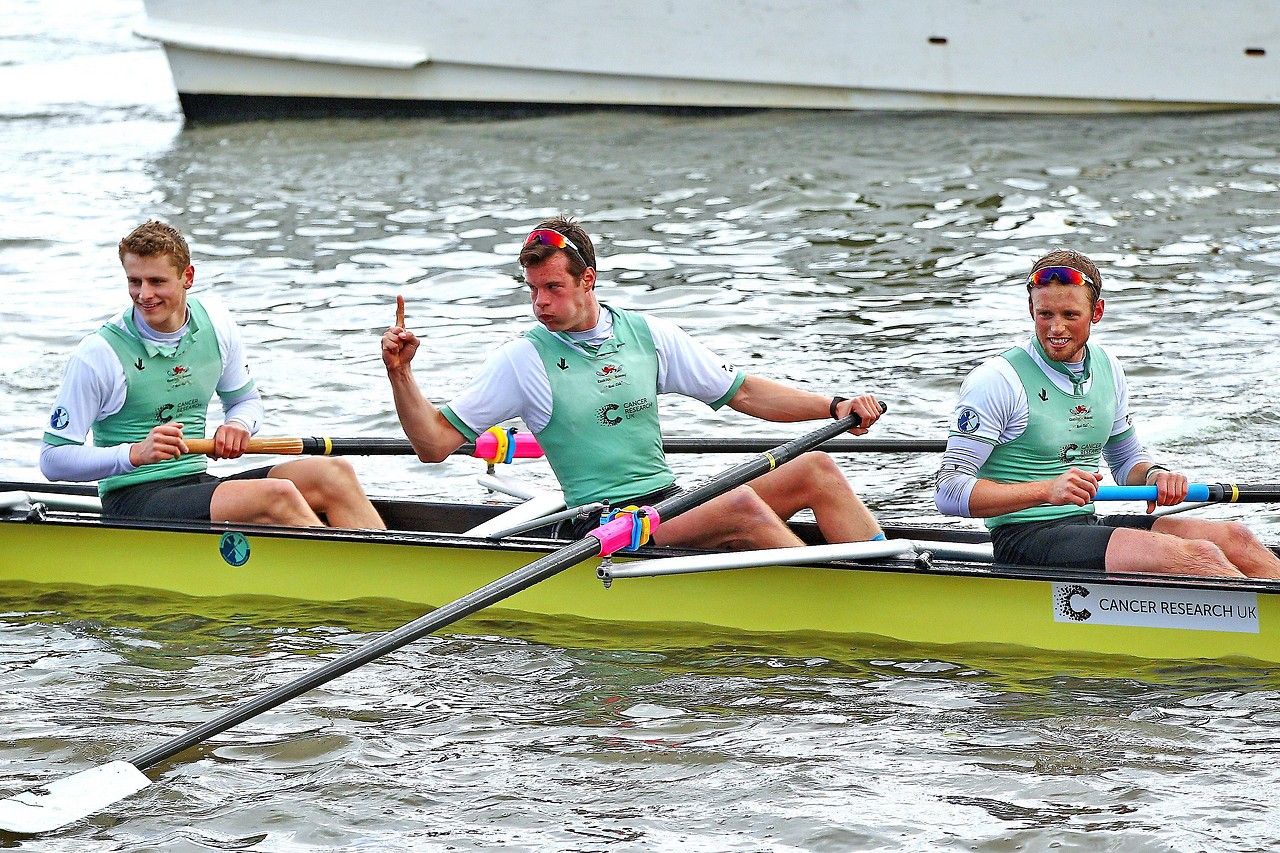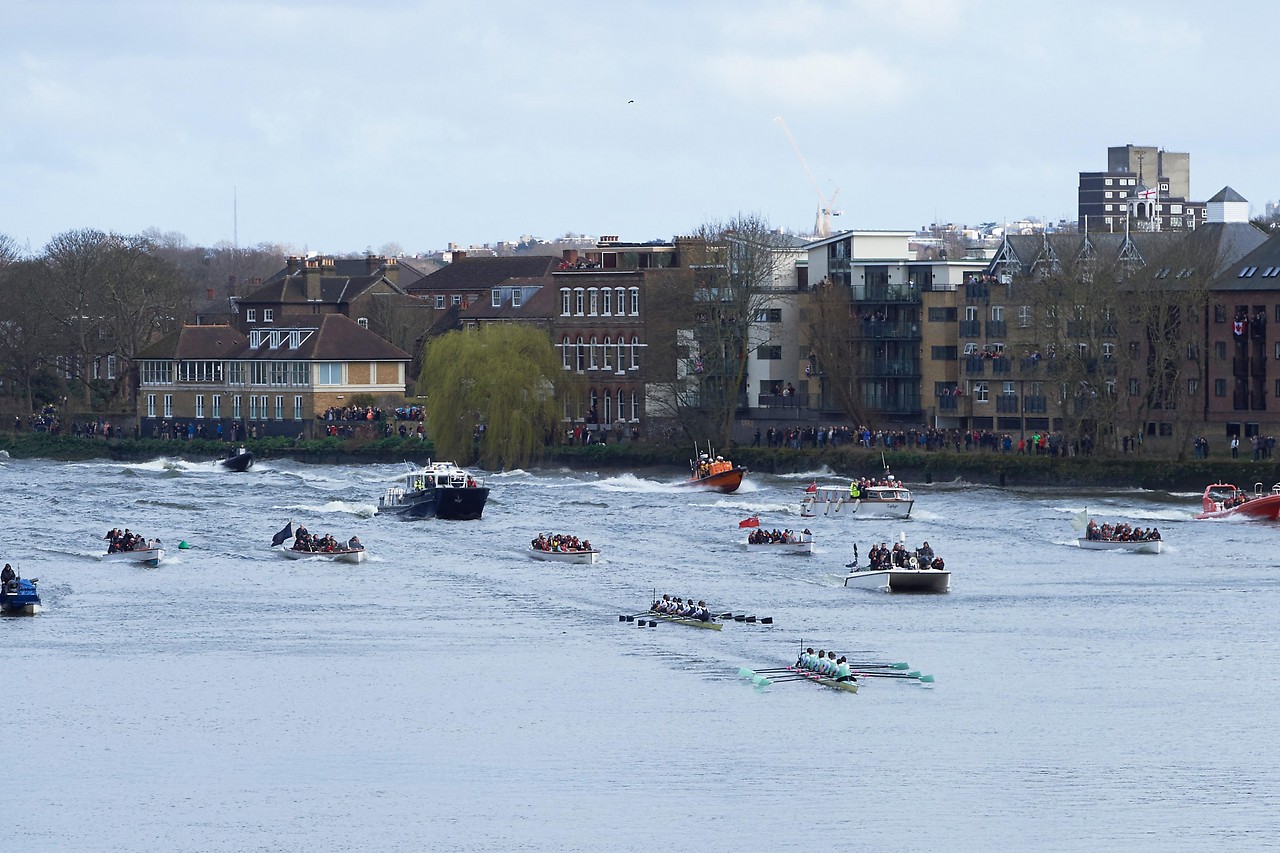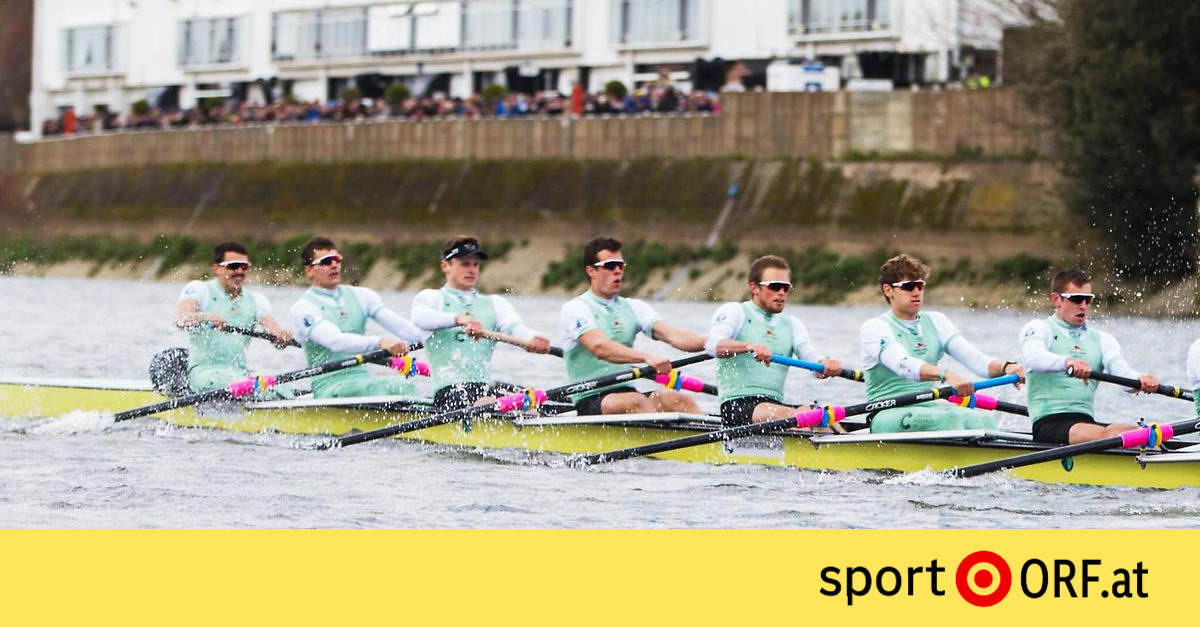A year after his club colleague at Wiking Linz, Alexander Leichter, Auersperg sat in 2016 on the fourth belt of the Cambridge Eight, which after a three-year dry spell brought the light blues another win against the dark blues. It was the 82nd triumph for Cambridge in the 162nd edition of the “Boat Race”. The men’s record currently stands at 85 wins for Cambridge and 81 for Oxford. The 1877 race was settled as a draw. In the women’s field, light blue is even more ahead with 46:30.
That March 27, 2016 is still very much alive at Auersperg. Logically, the best memory is that feeling of “reaching the finish line and slowly it sinks in that you’ve won”, but the moments before that – especially the steps from the boathouse to the water and the atmosphere on the banks of the Thames – have become more and more important 31-year-old brain burned.
“The warm-up takes place in complete silence on the other side of Putney Bridge. But when you pass under the bridge and are greeted by the majority of the 400,000 spectators in the starting area, you suddenly find yourself in the middle of a cauldron. It’s a goosebump feeling that I can still remember well,” says Auersperg in the Cambridge eight.
Although Auersperg’s concentration for the next 19 minutes was fully focused on the approximately 630 rowing strokes (“The race itself is pure execution”), the Upper Austrian had a moment of happiness soon after the start. With his eight study and rowing colleagues – one German, three Americans and three British athletes and the British helmsman – Auersperg rowed an important lead early on: “When I looked out for the first time after about a minute in the race and saw that we are in front, I was sure that this could be our day.”
By chance for rowing
It was not foreseeable in his youth that Auersperg of all people would achieve the historic triumph in the “Boat Race” from an Austrian point of view – colleague Leichter had been beaten by Oxford a year earlier. “Although I was always very enthusiastic about sports, in my early school years I was rather unsportsmanlike myself. A rowing trainer went to several schools and tested everyone on the ergometer and particularly encouraged us, the tall and heavy students, to row. It was the first sport in which I did quite well,” said Auersperg. Nevertheless, the 2.04 meter tall giant had to be persuaded to continue: “I think I stopped five or six times in the first year.”

The persistence of the environment paid off in the end. Because Auersperg later also rowed for the local national team and thus paved the way for his later professional career. “After the Army Sports Center, I thought about going abroad for my studies. For me, the USA and England were attractive options. A sticking point was that I received a scholarship for rowing in the USA,” said Auersperg after scouts from the renowned Columbia University had become aware of him at a Junior World Championships.
Career springboard „Boat Race“
Because in the USA you can only start as an undergraduate, but in England you can also start as a master’s student for the university, Auersperg moved to Cambridge with a bachelor’s degree from Columbia University in his pocket, where he successfully completed two master’s degrees. The academic success, combined with the sporting curriculum vitae – especially the victory in the “Boat Race” – finally opened the door to a successful professional career for him, says the man who lives in London with his Spanish wife Maria and their eight-month-old daughter Olympia Linzer working in corporate and strategy consulting at McKinsey.
“Especially in England, the ‘Boat Race’ has a special status, and network.” The main reason for the status is the fact that the preparation for the race has to take place alongside the student obligations. Although, according to Auersperg, a quarter of the students in Cambridge and Oxford row almost every day, unlike in the USA, for example, sport is only a private pleasure. No sports scholarships are awarded and – unlike in the USA – there is no advantage in the application process.
It is therefore a mark of quality if you study and row successfully. “You learn discipline, you know what it means to set goals and work hard for them. You also experience setbacks and have to learn to work through them. For me, rowing was probably the most formative experience after my upbringing at home and the important influence of my family.”
Intensive preparation
Preparing for the race isn’t for the faint of heart: waking up at 5 a.m. every day, training three times a day for six months, and consuming 8,000 calories a day. The training not only perfects the technical skills (“You train for about two to three hours for every single shot you make in the race”), but also prepares the crew for the special features on the Thames. Not only the race distance of around 6.8 km, which is more than three times as long as normal rowing regattas, but also the currents and waves on London’s lifeline, which is also influenced by the tides, are meticulously simulated.

Above all, the intensive preparation should ensure that the athletes function like a well-oiled machine in the race and ignore all external influences. “We’re maybe the only sport where you see the opponents you’re beating because we’re sitting with our backs to the direction of travel. When you’re at the back and you only see the sewage from the other boat and that then possibly decreases, that can cause nervousness,” says Auersperg, who was at the helm of the reserve boat in Cambridge a year before victory, emphasizing the psychological aspect.
Part of a glorious history
The spur to persevere is the prospect of being part of a piece of sports history. On June 10, 1829, rowers from Cambridge first challenged their colleagues from Oxford, since 1856 for men, since 1927 for women annually – except for both world wars and the pandemic year 2020 – and most of the time on the Championship Course upstream between Putney and rowed Chiswick Bridge. Collisions and sunken boats contribute to the cult in front of up to 400,000 onlookers, as does the only draw. In 1877, the referee was not drunk in the bushes, as legend has it, but could not clearly determine a winner due to the lack of target markings.
For Auersperg, in addition to the history of the race, the fact that there are still only amateurs in the boats is a big part of the fascination. “These are all people who study full-time in Oxford or Cambridge for a degree,” emphasizes the only Austrian winner once again that in the “Boat Race” no purchased legionnaires pull the belt. In addition, the mix of people is not only interesting because of the internationality. Olympic champions would put undergraduates “who are just beginning their college and athletic careers” in the same boat.
Even if, as with Auersperg, your active rowing career is long over, you remain part of the Cambridge rowing family for life and are invited to the annual race. “When I lived in the USA, I flew to London almost every year for the race, and I always came from Austria. The majority of the boat is there year after year, when there is an anniversary, then the whole boat is there,” says the Upper Austrian. At the traditional get-together of the former, Auersperg could also run into celebrities like Hugh Laurie. The actor (“House”) and son of an Olympic rowing champion was also at the helm for Cambridge in 1980. Unlike Auersperg, however, Laurie and his crew lost out.
